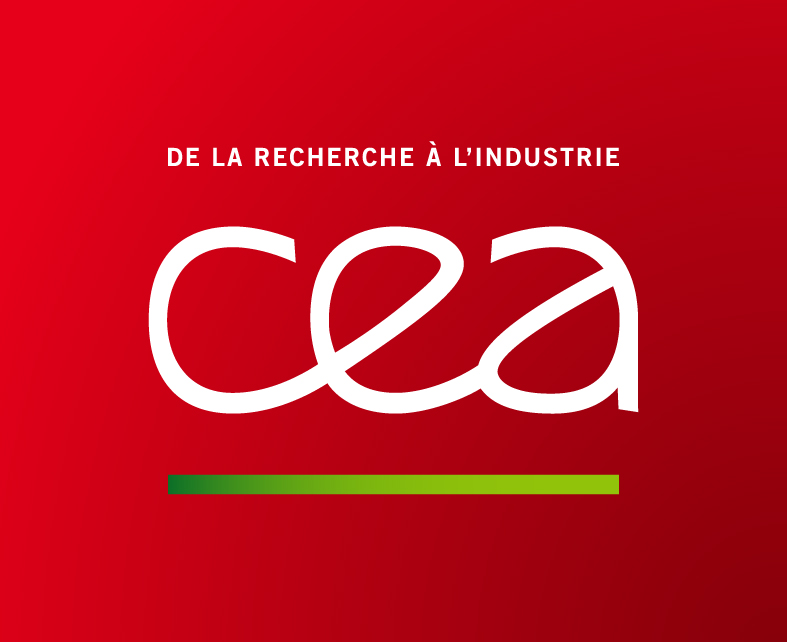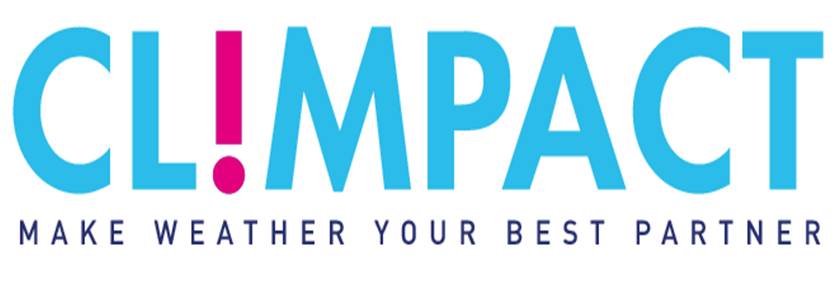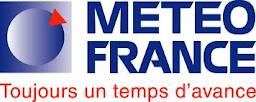E3P aims at filling a gap
between climate
science and its practical use in the energy sector, and creating in
turn favourable conditions for new business opportunities.
General introduction Started in September 2011, and for a duration of three years, the project "Extreme Events for Energy Providers" (E3P) aims at bridging the gap between the climate science and its practical use in the energy sector. Supported by the Climate Knowledge and Innovation Community known as Climate-KIC (more information is to be found here) and creating in turn favourable conditions for new business opportunities Most socio-economic regulations related to the resilience to climate extremes, from infrastructure or network design to insurance premiums, are based on a present-day climate with an assumption of stationarity. Climate extremes (heat waves, cold spells, droughts, storms and wind stilling) affect in particular energy production, supply, demand and security in several ways. While national, European or international projects have generated vast amounts of climate projections for the 21st century, their practical use in long-term planning remains limited. The consortium The E3P project is coordinated by the Commissariat a l'energie atomiques et aux energies alternatives (CEA) through the Laboratoire des Sciences du Climat et de l'Environnement (LSCE), a joint unit created and supported by the CEA, the National Centre for Scientific Research (French "Centre national de la recherche scientifique" or CNRS) and the University of Versailles. E3P gathers also another three academic institutions, the energy industry as well as SMEs.
The project
The value chain ranges from addressing research questions directly related to energy-significant climate extremes to providing innovative tools of information and decision making (including methodologies and software) and climate science training for the energy sector, with a focus on extreme events. Those tools will integrate the k4nowledge that is developed by scientific communities, and translate it into a usable probabilistic framework.
The E3P project will deliver projection tools assessing the probabilities of future energy-relevant climate extremes at a range of spatial scales varying from pan-European to local scales.
Estimating probabilistic diagnostics of energy user relevant variables from the multi-model projections will help the energy sector to elaborate medium to long-term plans, and will allow the assessment of climate risks associated to those plans.
Overview of the workpackages (WPs):
General introduction Started in September 2011, and for a duration of three years, the project "Extreme Events for Energy Providers" (E3P) aims at bridging the gap between the climate science and its practical use in the energy sector. Supported by the Climate Knowledge and Innovation Community known as Climate-KIC (more information is to be found here) and creating in turn favourable conditions for new business opportunities Most socio-economic regulations related to the resilience to climate extremes, from infrastructure or network design to insurance premiums, are based on a present-day climate with an assumption of stationarity. Climate extremes (heat waves, cold spells, droughts, storms and wind stilling) affect in particular energy production, supply, demand and security in several ways. While national, European or international projects have generated vast amounts of climate projections for the 21st century, their practical use in long-term planning remains limited. The consortium The E3P project is coordinated by the Commissariat a l'energie atomiques et aux energies alternatives (CEA) through the Laboratoire des Sciences du Climat et de l'Environnement (LSCE), a joint unit created and supported by the CEA, the National Centre for Scientific Research (French "Centre national de la recherche scientifique" or CNRS) and the University of Versailles. E3P gathers also another three academic institutions, the energy industry as well as SMEs.
- Academic institutions : LSCE, Meteo-France (FR), Imperial College (UK) and Wageningen University (NL)
- Industries : EDF and GDF Suez (FR)
- SMEs : ARIA Technologies, Numtech and CLIMPACT (FR)
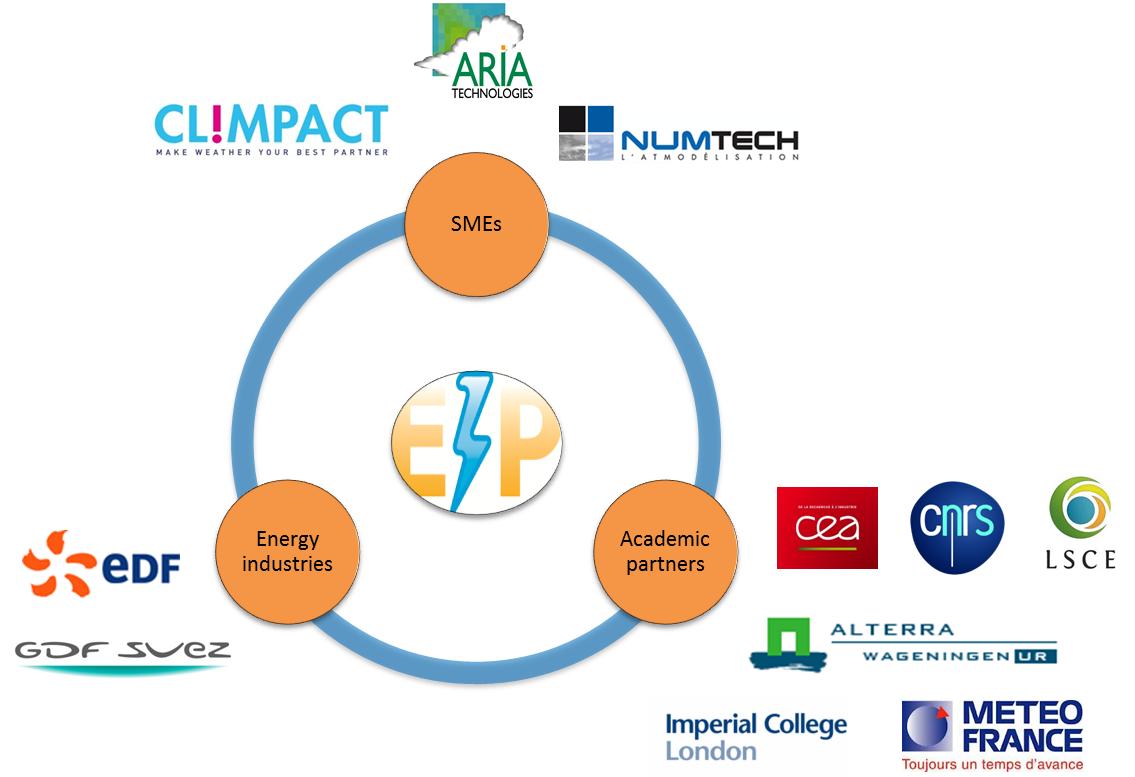 |
The project
The value chain ranges from addressing research questions directly related to energy-significant climate extremes to providing innovative tools of information and decision making (including methodologies and software) and climate science training for the energy sector, with a focus on extreme events. Those tools will integrate the k4nowledge that is developed by scientific communities, and translate it into a usable probabilistic framework.
The E3P project will deliver projection tools assessing the probabilities of future energy-relevant climate extremes at a range of spatial scales varying from pan-European to local scales.
Estimating probabilistic diagnostics of energy user relevant variables from the multi-model projections will help the energy sector to elaborate medium to long-term plans, and will allow the assessment of climate risks associated to those plans.
Overview of the workpackages (WPs):
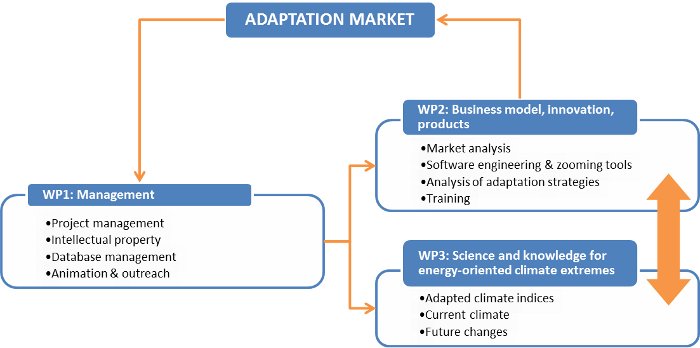 |
